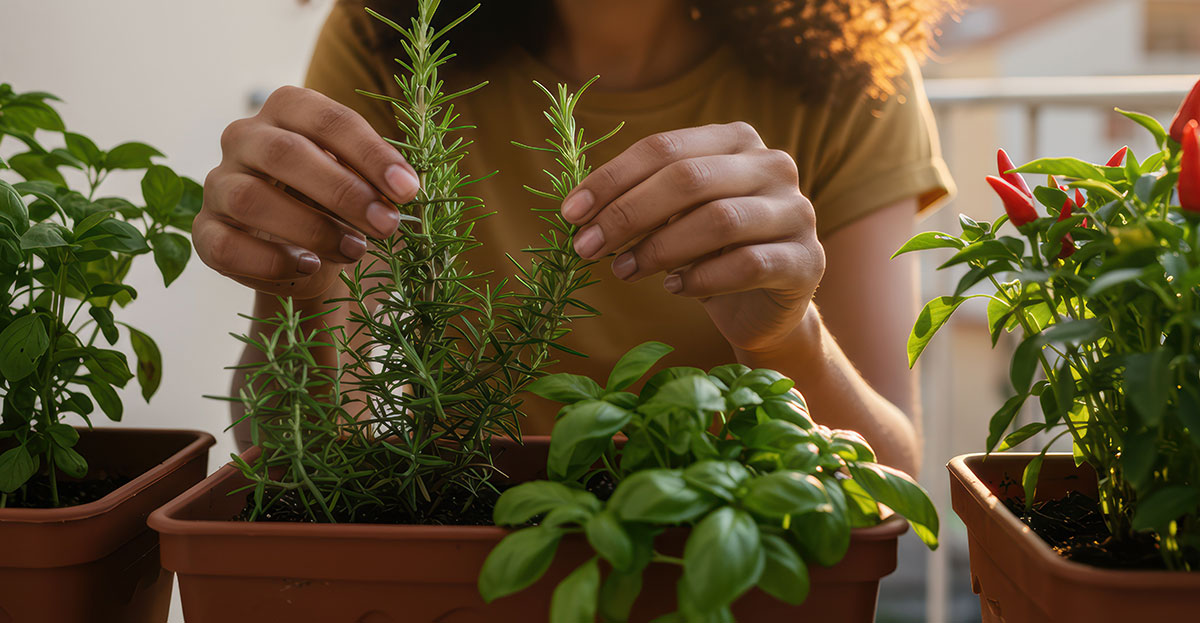One of the first lessons I learned in gardening was simple: if the roots aren’t watered, the plant won’t thrive. You can give a plant sunlight and even the best soil, but without water reaching the roots, it dries up.
Over time, I realized the same is true for people. In order to care for others—our families, our friends, our communities—we have to make sure our own roots are nourished first. Otherwise, we risk running on empty, giving until we’re depleted. This balance of self-care and care for others has become one of the biggest lessons my garden and my Buddhist practice have taught me.
The Tendency to Over-Give
Like many people, I’ve often found myself putting others first. If a friend needs help moving, I’ll show up, even if I’m tired. If work asks for extra effort, I’ll give it, even when I need rest. There’s a part of me that feels guilty for saying no, like I’m letting someone down.
But just like a plant that keeps producing fruit without being watered, that kind of over-giving eventually leads to burnout. I’ve had times when I was so drained that even the simplest acts of kindness felt heavy. That’s when I realized: caring for myself isn’t selfish—it’s necessary.
Self-Care as Root Work
When I water my plants, the water doesn’t just stay on the surface. It seeps down, reaching the roots where real growth happens. For me, self-care is like that—it’s about tending to what’s beneath the surface, the parts of myself that keep everything else alive.
For me, this looks like:
- Sitting in meditation, even for just ten minutes, to ground my mind.
- Spending quiet time in my rooftop garden, hands in the soil.
- Eating nourishing food instead of skipping meals.
- Allowing myself rest without guilt.
These simple acts give me the energy and clarity I need to show up fully for others.
The Overflow Effect
One of the most beautiful parts of gardening is how healthy plants give back. A tomato plant with strong roots produces more fruit than one that’s struggling. A thriving herb plant keeps offering leaves again and again.
When I’m well-rooted, my care for others flows more naturally and abundantly. Instead of giving from a place of obligation or exhaustion, I’m giving from a place of fullness. My smile is genuine, my presence is deeper, and my support has more energy behind it.
I think of it as the “overflow effect.” When we fill ourselves up first, the overflow naturally benefits those around us.
Knowing When to Pause
Of course, balance doesn’t mean splitting care for self and others 50/50 at all times. Just like in gardening, some seasons demand more attention in one direction. A new plant might need extra water, while an established one can handle a bit of drought.
In life, sometimes a loved one really does need us more intensely, and we step up. Other times, we have to recognize when our own well is running low and pause. I’ve learned to ask myself: Am I giving from fullness, or am I giving from depletion? If it’s the latter, I know it’s time to pause and water my own roots.
Releasing the Guilt
One of the hardest parts of self-care is letting go of guilt. At first, I felt selfish for turning down plans to rest or for taking time for myself instead of jumping in to help. But Buddhism teaches compassion not just for others, but also for ourselves.
I remind myself: I’m not abandoning anyone by resting. I’m strengthening my ability to be there in the long run. Just like a gardener steps back to let the soil recover, I’m giving myself what I need to keep growing and giving.
Practices That Help Me Balance
Here are a few practices that have helped me find balance between caring for myself and caring for others:
- Check in daily. I take a moment in the morning to notice how I feel—tired, energized, overwhelmed, or steady. This helps me know how much I can give that day.
- Set gentle boundaries. I’ve learned to say, “I’d love to help, but I need to rest tonight—can I support you another way?”
- Combine care. Sometimes I invite friends into my self-care. Sharing tea in my garden, meditating together, or cooking a simple meal blends connection with replenishment.
- Celebrate small acts. Self-care doesn’t always mean a spa day—it can be as simple as drinking water, stretching, or stepping outside for a breath of fresh air.
The Garden as a Mirror
Every time I water my plants, I see the reflection of this truth: roots matter most. Strong roots lead to thriving plants, and a well-cared-for self leads to stronger connections with others.
The garden doesn’t guilt me into overwatering, and it doesn’t apologize for needing more care some days. It simply asks for balance, and it responds with growth when it receives it. I try to live by the same rhythm.
Final Thoughts
Balancing self-care and care for others isn’t about keeping score. It’s about noticing when your own roots are dry, and having the courage to water them before you give again. It’s about recognizing that by tending to yourself, you’re not taking away from others—you’re ensuring you can show up more fully, with energy and love that’s real.
So the next time you feel stretched thin, I invite you to think of a plant. Picture its roots, thirsty and waiting. Then picture how it thrives when those roots are watered. We’re no different. When we take care of our roots, we don’t just survive—we flourish. And when we flourish, so does everyone around us.
